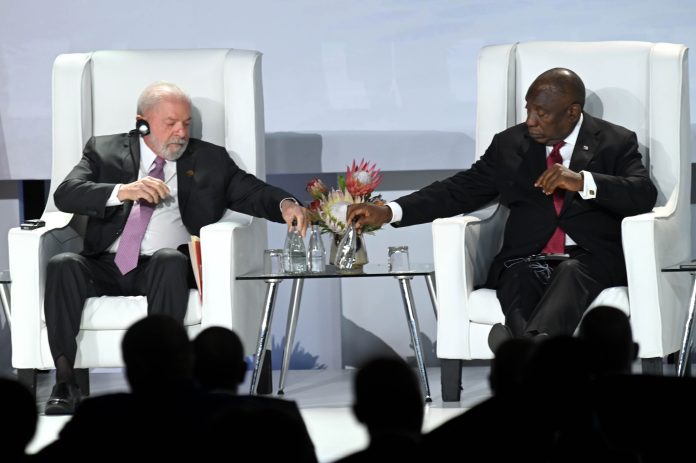Arguably, Ghana was the first African country in 1957 to throw off the shackles of British colonialism, and ironically three years later in 1960, the world would hear the coloniser and Britain’s prime minister, Harold Macmillan, deliver in Cape Town’s apartheid parliament his famous “Winds of Change” speech.
The winds of change continue to blow in South Africa, as we saw at the conclusion of the Brics Summit in Sandton, Johannesburg, on Thursday, when six more countries – Argentina, Saudi Arabia, Ethiopia, Egypt, United Arab Emirates and Iran – committed to join the Brics family of Brazil, Russia, India, China and South Africa, in January next year.
The move is to end the stranglehold the West has had over the global South, including the imposition on us its Western-leaning ideologies and hegemony.
Macmillan, a man of political conservative views, told the colonialists and oppressors who had stolen the African continent that the status quo would not remain the same. Change was coming – and the change would be unbearable.
Let us capture his words: “The winds of change are blowing throughout this continent (Africa). Whether we like it or not, this growth of national consciousness is a political fact.”
First, it was Ghana. Colonialism was defeated. The process, starting in 1957, marked the beginning of decolonisation, with Africans, country by country, breaking the shackles of oppression and dispossession. Yet, many countries felt, and continue to feel, marginalised by
political or economic strictures imposed on them by the West.
The bigger question is, how will Brics and our affiliation to it, help us improve our cause for a better life for all South Africans?
The act of solidarity that took place in Sandton on Thursday is a marker of things to come, if only our government plays the game by the book.
As we understand it, Brics’ economic policies will be determined by all its member states, each with its unique political and economic infrastructure – inclusive of women and youth participation in its decision-making processes.
Our economic systems and policies have in the main been influenced by the US, with IMF and World Bank behind our often-misguided policies.
It seems, without being privy to the minutest details, with the expansion of Brics, by accommodating more countries in its fold, as South Africa we could find ourselves in a much better place.
And so, we welcome the declaration that Brics embraces “equal partnerships” even with countries “with differing views”.
The winds of change are descending on our world. As South Africans we should feel energised. As a black publication, we keep our ears to the ground, and we hear, day after day, the cries of the people who demand a clean and transparent government, willing to consider the pressing needs of its people.
Brics may just be the necessary antidote to jerk us out of our inertia.
We fully subscribe to Brics’ notion of “a world that is fair, just, inclusive and prosperous.”
Follow @SundayWorldZA on Twitter and @sundayworldza on Instagram, or like our Facebook Page, Sunday World, by clicking here for the latest breaking news in South Africa.



